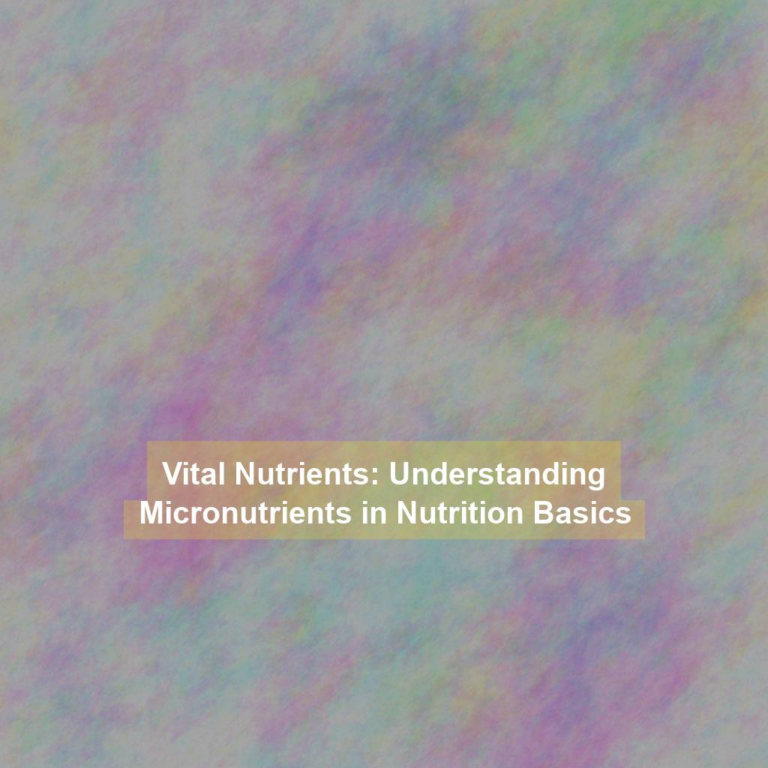You know that feeling when your phone battery is running low and you plug it in to charge, and suddenly it’s back to full power? Well, think of vitamins as the essential nutrients that recharge your body’s battery. They play a crucial role in maintaining overall health and well-being, yet many people underestimate their impact.
But what if I told you that understanding the role of vitamins in health could be the key to unlocking your body’s full potential? There’s more to it than just popping a multivitamin now and then. Understanding the intricacies of vitamin deficiencies and the top sources of essential vitamins could be the missing piece to your health puzzle.
The Role of Vitamins in Health
Vitamins play a crucial role in maintaining overall health and well-being, ensuring that your body functions optimally. These essential micronutrients are responsible for a wide range of bodily functions, from supporting the immune system to aiding in the production of energy.
Vitamin A, for example, is vital for maintaining good vision, while vitamin C acts as a powerful antioxidant, helping to protect your cells from damage. B vitamins, including B6 and B12, play a key role in metabolism and the production of red blood cells. Without an adequate intake of these vitamins, you may experience fatigue, weakness, or even more severe health issues.
It’s important to note that vitamins aren’t produced by the body in sufficient amounts, so you need to obtain them through your diet or supplementation. A balanced and varied diet that includes plenty of fruits, vegetables, whole grains, and lean proteins can help you meet your vitamin needs. However, in some cases, a healthcare provider may recommend supplements to address specific deficiencies.
Understanding Vitamin Deficiencies
To maintain optimal health, it’s essential to understand the impact of vitamin deficiencies on your body’s functioning. When your body lacks specific vitamins, it can lead to various health problems. For example, a deficiency in vitamin D can weaken your bones and increase the risk of fractures. Vitamin C deficiency can result in scurvy, causing fatigue, inflamed gums, and poor wound healing. Lack of vitamin B12 may lead to anemia and neurological issues. Understanding these deficiencies is crucial for maintaining your overall well-being.
Vitamin deficiencies can occur due to inadequate dietary intake, poor absorption, or certain health conditions. It’s important to recognize the signs of potential deficiencies, such as fatigue, muscle weakness, brittle hair and nails, and frequent infections. If you suspect a deficiency, consult with a healthcare professional for proper diagnosis and treatment.
Top Sources of Essential Vitamins
Ensuring a balanced diet rich in a variety of foods is crucial for obtaining the essential vitamins your body needs for optimal health. When it comes to vitamin sources, fruits and vegetables are your best friends. For instance, citrus fruits like oranges and grapefruits are packed with vitamin C, which is essential for a healthy immune system.
Leafy greens such as spinach and kale are excellent sources of vitamin K, crucial for blood clotting and bone health. Additionally, dairy products like milk and yogurt are rich in calcium and vitamin D, both vital for strong bones and teeth.
For vitamin E, turn to nuts and seeds like almonds and sunflower seeds, while carrots and sweet potatoes are great sources of vitamin A, important for vision and immune function. Lastly, fatty fish such as salmon and mackerel provide ample amounts of vitamin D, omega-3 fatty acids, and other essential nutrients.
Impact of Vitamins on Immune System
Boost your immune system with essential vitamins found in a variety of foods, such as citrus fruits, leafy greens, dairy products, nuts, seeds, and fatty fish.
Vitamins play a crucial role in supporting your immune system’s function. Vitamin C, found in citrus fruits and leafy greens, is known for its immune-boosting properties. It helps stimulate the production of white blood cells, which are vital for fighting off infections.
Additionally, Vitamin E, abundant in nuts and seeds, acts as a powerful antioxidant, protecting immune cells from damage. Vitamin D, found in dairy products and fatty fish, is also essential for immune regulation and has been linked to a reduced risk of respiratory infections.
Moreover, Vitamin A, present in leafy greens and dairy products, supports the integrity of the mucosal barriers in the respiratory and gastrointestinal tracts, which are the body’s first line of defense against pathogens.
Ensuring you consume a balanced diet rich in these essential vitamins is key to maintaining a robust immune system and overall good health.
Optimizing Health With Vitamin Supplementation
Pivoting from the impact of vitamins on the immune system, optimizing your health with vitamin supplementation is a proactive approach to ensuring your body receives essential nutrients for overall well-being. Incorporating a daily multivitamin can help fill nutritional gaps, especially if your diet lacks variety.
Look for a multivitamin that provides essential vitamins such as A, C, D, E, and K, as well as important minerals like magnesium, calcium, and zinc. Vitamin D, in particular, is crucial for bone health and immune function, but many people don’t get enough of it. If you have specific health concerns or dietary restrictions, consider targeted supplements to address those needs. For example, if you follow a vegetarian or vegan diet, you might need to supplement with vitamin B12.
Always consult with a healthcare professional before starting any new supplements, as they can provide personalized recommendations based on your individual health status. Remember, while supplements can be beneficial, they aren’t a substitute for a balanced diet rich in fruits, vegetables, whole grains, and lean proteins.
Conclusion
So, now you know the importance of vitamins for your health.
Make sure to include a variety of vitamin-rich foods in your diet and consider supplementing when necessary.
Taking care of your vitamin intake can have a significant impact on your overall well-being and immune system.
Stay healthy and nourished by unlocking the power of vitamins in your daily routine.







